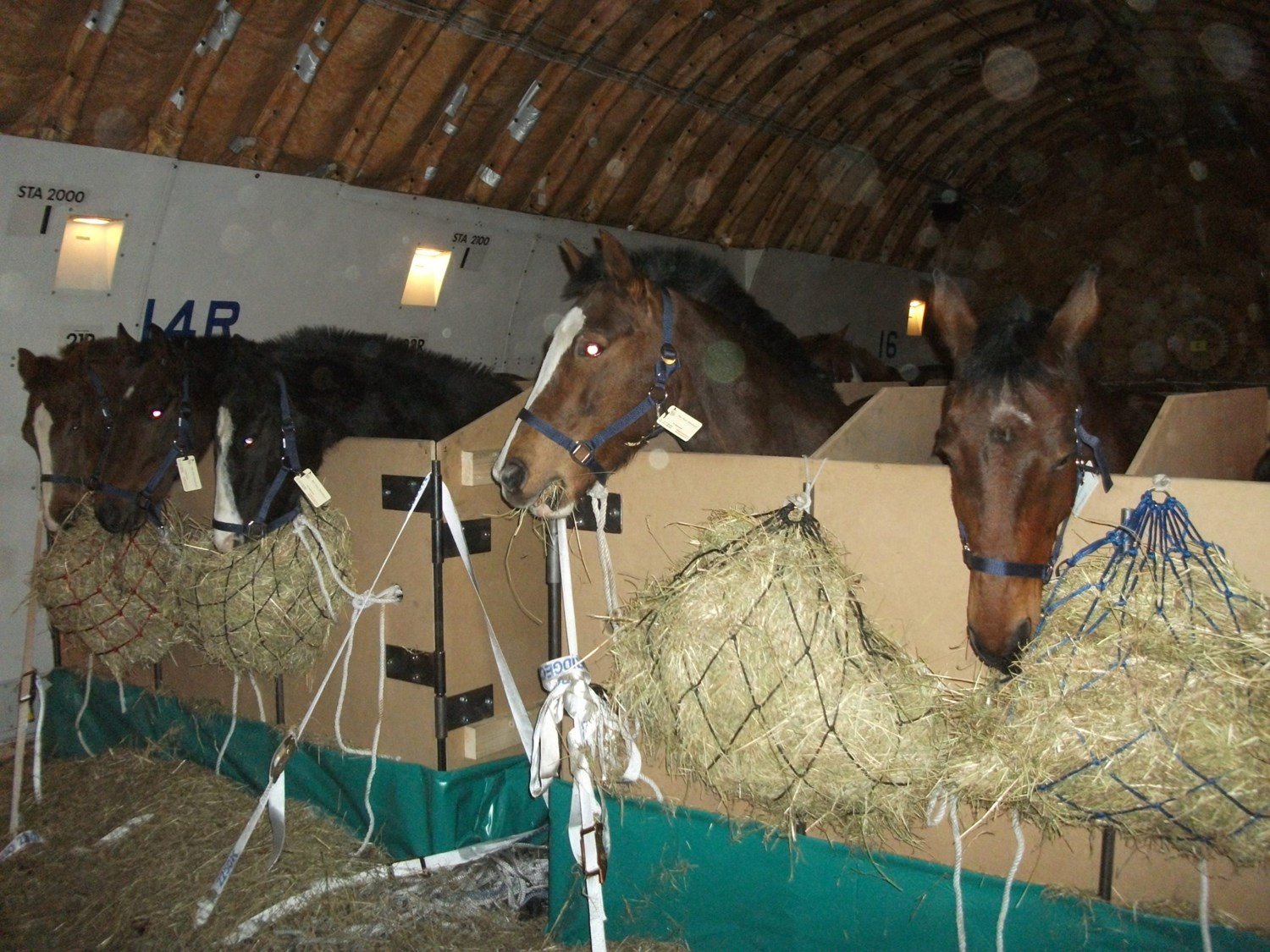At F2F, the general wellbeing of the horses we transport is of superior importance above anything else. Therefore, we respect very closely all the medical, hygiene, dietary, rest, ventilation norms of equine transport. After all, the greatest priority is that your horse is well cared for on the way and arrives fit at its destination.
Due to stress, horses lose a lot of moisture, especially during the first few hours on the car. In fact, every time again. Preventing this is therefore an important factor, even if it is horse-dependent whether it can be removed completely or only partially.
The professional transport of horses depends on the conditions in which your horse is transported.
– Professional drivers who understand horses (wellbeing) and have a feeling for horses;
– The continuous availability of water and hay during the journey;
– A controlled driving style of our drivers;
– Enough stops and rest for both horses and drivers;
– Good temperature and ventilation on our cars
Resting & Layover Policies
For long transports(especially ground transport), we have short and long rest stops.
-For short rest stops, we make a pause on a 4-hours basis for at least 20 minutes, mostly beneath a tree with fresh air and we open all the windows for proper circulation of air. During these temporal rest stops, the horses are not unloaded from the truck.
-For long rest stops, we provide for layover/overnight stabling every 10-12 hours of the trip. We have partner stables almost on every route or we make arrangements with one in advance. The horses are unloaded, exercised, fed, and watered according to their specific needs. We always arrange the trip in such a way that every 10-12 hours of the trip will be at nightfall for proper resting of the horses. They are stabled all night and continue their trip the next morning
-Ground Covering
Horses are standing with us in a thick layer of wood shavings, this makes the car less dirty and the horses are dry. For example, some horses don’t want to urinate because it splashes against their legs. They keep the puddle on what can cause colic. A thick layer of curls is therefore essential. Urine is absorbed, this keeps the air in the car fresh and a horse doesn’t hesitate to urinate anyway.

